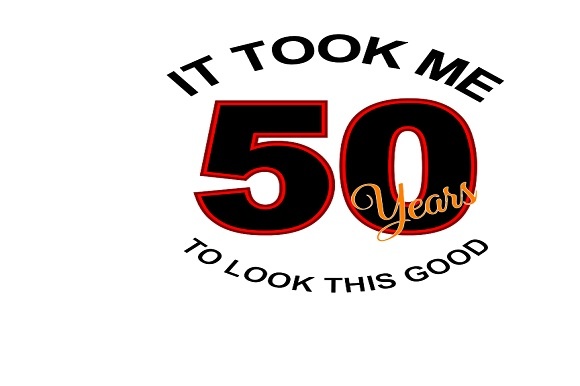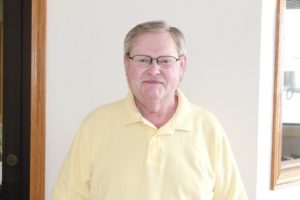Birthdays don’t mean much after you turn 21, do they? Oh, wait. They do when you turn 50 years old. September 2 is the day I mark a half-century of existence. Do you want to know the interesting part? I didn’t expect to live this long.
I was born with what’s called Wolf-Parkinson-White Syndrome. When your heart beats, the nerve impulse from your brain travels in a circuit around your heart, which constitutes one beat. Yes, I’m oversimplifying, but that’s how it was explained to me.
So, those born with WPW have a defect that allows the nerve pathway to short-circuit itself, which plays hell with your heartbeat. The spells of irregular heartbeats could have done some serious damage, especially as I got into my teenage years. At one point, the top half of my heart was motoring along between 250-300 beats a minute, while the bottom half hit hyper speed at more than 500 beats a minute.

When that happens, blood clots form easily inside the heart. If that clot should get out of the heart, make a circuit around the body and hit the brain, you’re done. You drop dead on the spot. So, long story short, surgery was scheduled on June 3, 1986.
I remember the gap between making the decision to have surgery and the operation being longer than I wanted. That was hard to live with as an awkward teenager. At one point, my stress level was so high I jumped into the middle of a pickup basketball game over the lunch hour at Castlewood High School. Best basketball I’d ever played in my life.
Remember the movie “White Men Can’t Jump?” I’ve always considered that autobiographical. I am as gravity-bound as the movie described white guys. I was a whirling dervish, running up and down the court as fast as my slow-dude legs could carry me. At one point, I came up behind someone going up for a short jump shot and swatted it to the other side of the room. The only blocked shot of my life. I played that whole game wondering if it was going to kill me and I’m not making that up. Fear of death really adds zip to your game, no matter what you’re playing.
So, the surgery came and went, and lo and behold, it was successful. June 3, 1986, was a monumental day in this guy’s life. The one thing I remember the most vividly came after I was in recovery. They were making final plans to get me ready for release only three days after the operation and there was one important thing left to do.
After the surgeon sowed me up, he made two small horizontal slits right underneath the big scar. The doctor then inserted a suction tube in each slit to clear the body cavity of excess blood, preventing peritonitis, which you do NOT want. The doc says, “It’s going to be uncomfortable.” Right. Let me tell you how it felt.

Try to imagine that someone was able to pull your shoulders and collarbones down through your chest cavity and then yank them through your skin and out of your body a few inches above your belly button. The pain was unlike anything I’ve ever felt. Every nerve was on fire, my vision went white, and my mom said I was screaming bloody murder. She was being kind. I was screaming my little white butt off and thought I might be dying. I hope I never have to hurt that bad again.
So, there I was, suddenly assured of a much better chance of seeing more birthdays go by. I’m not making it up when I say at one point during those early years of heart trouble, I literally prayed to God to let me live a full life. That’s all I asked for. He answered.
So, what does the second half of my life look like? I don’t know for sure. I’d like to make an impact for the Kingdom before I leave this world. I don’t know when that will be. You see, several years ago, I had to undergo ANOTHER heart operation as I developed an irregular heartbeat problem apart from the WPW I was born with.
Make every day count. You just don’t know which of your birthdays will be your last. If you haven’t had any kind of problems that threaten your ability to keep breathing, it might be hard to truly understand.
Look at Chadwick Boseman. The world-famous actor passed away recently. What we thought was a picture of health in the Black Panther costume wasn’t the case. He had cancer for the last four years of his life and no one knew he was on borrowed time. It. Can. Happen. To. You.
I can tell you one thing for sure. The two biggest commands in the Bible are a good place to start. Jesus Himself said, “Love the Lord with all your heart, soul, mind, and strength, and love your neighbor as yourself.” I think that’s a good place to start for the second half of my life, however long that may be.

